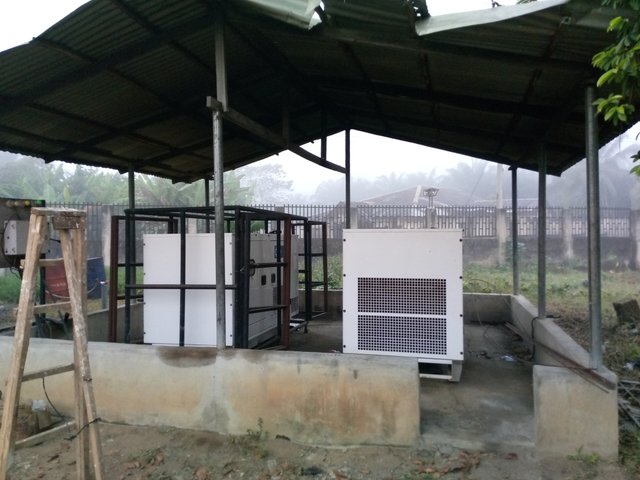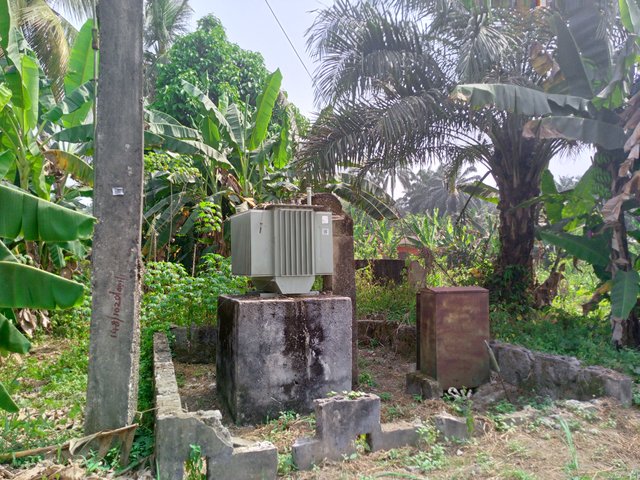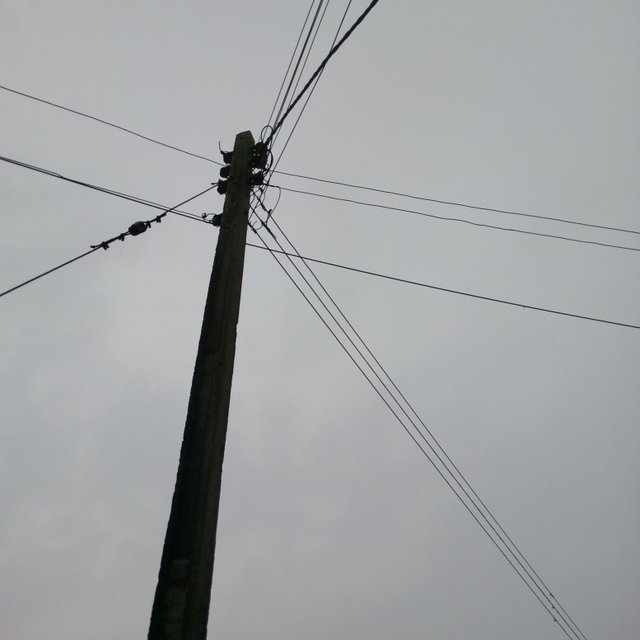 |
|---|
In very heavy rainfall, I usually hear people say, Put off those switches; unplug the appliances from the socket. I do this often, and it has become accustomed to me after I came to realise that direct lightning strikes can cause an electrical shock on people, of which I was once a victim while fixing a metallic stove during heavy rainfall, and can cause power fluctuations in appliances that is when there is electricity and causes damage to their internal components. Let's delve into the homework questions.
Differences Between Electrical Generator, Motor, and Transformer |
|---|
 | Generator |
|---|---|
| Transformer |  |
I will be more elaborate in these differences since we have ones that are more outstanding, or I will say the core differences. Before highlighting these differences, let me define them because it is through this definition that the understanding of the differences could be seen.
There is a principle that is used in the operation of this type of appliance, and that is electromagnetic induction, which I will be using to define a generator.
Differences based on energy conversion/applications
Generators: A changing magnetic flux is one that changes both in strength and in direction, so this changing field induces an electric field, which in the process leads to a flow of current, and surely we know a flow of current is a significance of electric flow. A generator is a device that converts mechanical energy, like what happens in the turbines, to electrical energy.
The word motor sounds like something that revolves or rotates; this rotation is made possible by magnetic energy engineered by electricity, so we can say that it converts electrical energy to mechanical energy.
A transformer is already an electrical device, and it accepts electricity from lines, steps it up or down, and then, depending on its purpose, transfers it from one circuit to another.
Differences based on Function
Generators produce electricity for power lines.
Motors use electricity to move industrial vehicles and power house appliances and lots more.
Transformers accept electricity and transfer it with varying voltage depending on their purpose.
Differences based on Operation
A generator produces electricity.
A motor produces rotation.
A transformer transfers energy to produce electricity.
QUESTIONS B; Details about lightning arrestors |
|---|

From physics, when I was taught about insulators and lightning arrestors, I was told that two metals can be useful in lightning arrestors and that it is copper and zinc because of their effectiveness in protecting from electrical surges, but the most common, easily accessed is copper.
Now we can say that lightning is a result of the interaction of positive and negative ends, and this occurs in the atmosphere, so placing the copper rod on the peak and centre of a building makes it possible for lightning to follow a specific path and reduces side flash occurrences. This high installation also protects wiring and appliances connected to sockets when there is electricity or no electricity.
It is true that lightning arrestors are of utmost importance depending on the region; take, for instance, I live in the tropical rainforest, and we are known for a frequent amount of rainfall and thunderstorms/lightning strikes, so in a region like this, a lightning arrestor is very necessary for protecting our household appliances.
From the little research I did, I came to discover that we have numerous types of lightning arrestors, and to be precise, there are twelve in number, but the most common in Nigeria is
Rod gap arrestors: If you notice in transmission lines the lightning arrestor used there, you will see a long rod spaced out; this is a rod gap arrestor., etc.
QUESTION C; Calculations/Solutions |
|---|

Using the formula
P = √3 * V * I * Power factor
By changing the subject formulae, we have
I = P/√3VI*Power Factor
We assume that a standard three-phase should have a voltage of 415V.
Therefore;
- I = 1500 * 1000 / 1.73 * 415 * 0.9
- I = ~2364.47 A;
this is the actual current of the power factor generator.
C. ii |
|---|
When a load is added to a generator, we experience a reduction in current flow, and that can be applied here; multiplying the load percentage by the current will give you the load current; therefore
- 2364.47A * 0.8
- =1891.58 Amperes
QUESTION D; calculations |
|---|
The first step is calculating the entire power in watts; this is done by multiplying the power each appliance is meant to consume and the number of each appliance.
- Lights = 5*30 = 150 watts
- Fans = 3*70 = 210 watts
- Refrigerator = 1500 watts
- Air conditioner = 2000 watts
- Total = 3860 watts
Using a 0.8 power factor, we will have
- KvA = Total power/Power Factor
- KvA = 3860/0.8
- =4825
Since it is advisable to buy a with a KvA 20% higher, we multiply it by 20% and add it to the original KvA to give us the final calculation.
- 4825 * 20% = 965
- 4825 + 965 = 5790 kVA
PRACTICAL; Lightning Arrestor Connection |
|---|
Sometime ago dad bought a copper rod for making a lighthnig arrestor, it wasn't possible because he was too busy to connect it and today here I am in the roof too trying to see what I can do in respect to the lesson assignment.
 |  |
|---|
- The first step is setting up all the equipment. I have two rods in my hands, but I will be using just one, that is the slim one. If you notice the top of each rod has a pointed top, this is very important for rods that should be used for lightning arrestors; they must have a pointed top, and that should be facing up.

- So the next step is attaching it to my rooftop. If you notice, this roof is made of wood, and that will act as an insulator. I did not have enough tools for this job, so I had to improvise by tying it to the wooden top, and then after doing this, I attached my cable to the copper rod bottom and then passed the cable down through the roof side, then
 |  |
|---|---|
 |  |
- What I did next was earthing. I passed the wire down to the earth; I could remember in physics I was taught that a salt bag can be buried with the posterior end of the wire, so I did that, and that was all; my lightning arrestor is done.
I would to see my friend @solaymann, @basil20 @whizzbro4eva and @dwings join this contest today
Upvoted! Thank you for supporting witness @jswit.
Downvoting a post can decrease pending rewards and make it less visible. Common reasons:
Submit
You've done justice to the assignment; it's quite sad that I couldn't join this particular lesson due to some circumstances beyond my control. I will be present in the next class, hopefully, but I will advice that you should always make use of a ladder when you are to get into the roof of a building through the manhole to avoid accidents. Your life is too precious.
Congratulations in advance, my boss.
Downvoting a post can decrease pending rewards and make it less visible. Common reasons:
Submit
Hahahaha, I had to perform the practical assignment as soon as possible on Saturdays, as you know my Saturdays are always very busy from house chore to church and all of that, I have been waiting for your entry bro, but unfortunately, and very unfortunately you didn't join, don't miss out knowing this is your field and I gotta learn more from you.
Downvoting a post can decrease pending rewards and make it less visible. Common reasons:
Submit
x promotion link
https://x.com/nsijoro/status/1876467463996711123
Downvoting a post can decrease pending rewards and make it less visible. Common reasons:
Submit